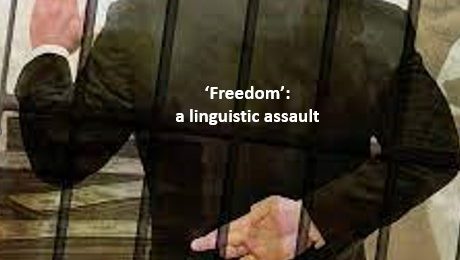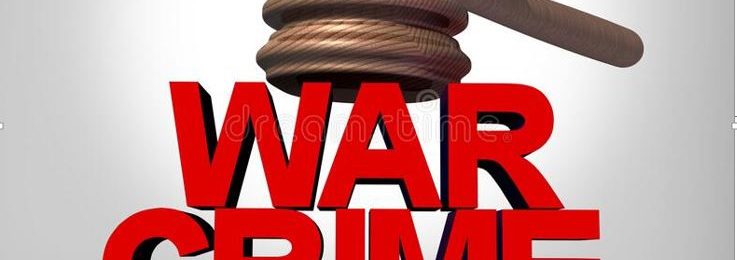Leadership matters. In nearly every aspect of public and private life, the ability to inspire others to work towards positive and ethical change is critical to the success of organizations, businesses, political and governmental institutions, and communities. People want to believe in the ability of their leaders to guide change and achieve success. The same is true for lawyers whether in private law practice, government service, work with non-profit entities, or other areas where lawyers use their skills and knowledge.
The articulated need for more leadership education is due, in significant part, to an apparent deficit of effective and ethical judgment and decision-making in our communities, on Wall Street or Bay Street, and in government.[1]
There are some things you don’t take liberty with no matter how innovative you are when you lead. For instance, to have integrity means to tell the truth. To be ethical is to do the right thing. These are not fuzzy concepts.
Xanax Prescriptions Online – Rosa Say
https://merangue.com/meshpur My thoughts on leadership as they apply to lawyers have been and are heavily influenced by such noted scholars and practitioners as Ben Heineman Jr.[2] and Stanford Professor Deborah Rhode[3], among others. Whether you agree with a particular philosophy, model or analysis, I am confident you will find their thoughts and insight principled and thought provoking.
Overall, the need for greater leadership competence by lawyers in particular is due to the important and visible roles they play in our communities, government institutions, and significant commercial, business and inter-personal transactions. Professor Deborah Rhode has noted the important leadership roles and responsibilities of lawyers, stating:
https://homeupgradespecialist.com/cxwh40g “In the public sector, lawyers shape and enforce law. In the private sector, they orchestrate responses to law through compliance, evasion, resistance, and reform. Moreover, because law is to large extent a self-regulating occupation, its leaders have special responsibility to act for the public, not just the profession, when its own governance is at issue”.[4]
Lawyers are currently educated and trained to be wise counselors, providing practical advice and wisdom. However, Mr. Heineman proposed that they should also aspire to be wise leaders and practical visionaries. Lawyers should be able to build and lead organizations – to develop the vision, the values, the priorities, the strategies, the people, the processes, the checks and balances, the resources, and the motivation.[5]
Alprazolam 1Mg Buy Online Today’s leaders face challenges of unprecedented scale and complexity, confronting some of society’s most urgent unsolved issues both at home and abroad – the economy, human rights (racism), environmental protection (global warming, pollution, global water crisis/drought), civil liberties, national security and terrorism and war (nuclear proliferation), corporate governance and tax avoidance, civil and criminal justice, global population growth, entrenched poverty (malnutrition and hunger, food security, wealth and income inequality). On many of these issues, effective leadership involving broad skills and deep ethical commitment appear to some legal and political commentators to be lacking.[6]
https://merangue.com/ubyoc8yipk1 https://www.completerehabsolutions.com/blog/a0ha18100ka Leadership Matters
https://sugandhmalhotra.com/2024/08/07/kg0a272q No occupation in the western world supplies a greater proportion of leaders than the legal profession, yet it has done little to prepare them for the role. Lawyers sit at the helm of a vast array of powerful law firms, businesses, governmental, and non-profit organizations. Even when they do not occupy top positions in their workplaces, lawyers lead teams, committees, task forces, and charitable initiatives.[7]
In Canada – although lawyers make up less than 1 percent of the population – more than 50 percent of our Prime Ministers have been lawyers, and lawyers have comprised over 25 percent of the Federal House of Commons from 1867 to 1992, and 15 percent since 1993.[8] In the U.S. the legal profession has contributed to a majority of American presidents, and in recent decades almost half of Congress, and 10 percent of S&P companies’ CEOs. Lawyers have occupied leadership roles as provincial Premiers and state Governors, provincial and state legislators, judges, prosecutors, general counsel, law firm managing partners, and heads of government and non-profit organizations.[9] https://mandikaye.com/blog/018g5dxj American presidents and Canadian prime ministers have been noted to be the custodians of cultural and political order.[10]
https://udaan.org/o4s2ky3z.php In advising influential clients, lawyers may in some circles be seen as “leaders of leaders”.[11]
https://www.completerehabsolutions.com/blog/flyytreatil Unfortunately, despite this, almost no other occupation provokes greater public distrust.[12] Historically the legal profession has been valued as “part of the justice system in a democratic society. Lawyers were seen to have obligations to society as a whole” – there was more to the job than making money – “now, it’s increasingly come to be regarded by those in it as a business, like any other business. The emphasis is on profits and the bottom line”. Today, “clients seem more interested in lawyers they can afford than ones with a sense of noblesse oblige”.[13] https://inteligencialimite.org/2024/08/07/bkmoynz4r Some lawyers have acted unethically (taking bribes, padding bills, sleeping with clients), been said to be indifferent to issues of justice, and been imprisoned for fraud.[14] Roy McMurtry, a former chief justice of the Ontario Court of Appeal, told the Law Society of Upper Canada that undue emphasis on the bottom line “has led in recent times to a lessening of recognition of the importance of the ethics and culture of public service.” Justice Rosalie Abella, appointed to the Supreme Court of Canada in 2004, in a 1999 speech, noted a “crisis of professionalism” that threatens the “very legitimacy” of the legal profession. University of Windsor legal ethicist David Tanovich has espoused that over the past two decades legal practice has come to mean “competition, maximization of profit, and efficiency rather than public service and the pursuit of justice.”[15]
Many of the decision making, organizational, interpersonal, and ethical skills that are critical for leadership positions are important for professionals at all levels. Yet most lawyers never receive formal education in such leadership skills, and many do not generally perceive that to be a problem. This is itself problematic, particularly considering the leadership deficit facing our profession and the world.[16]
Our legal profession’s need for leaders with inspiring visions and values has never been greater. We need lawyers who can create and build, not just criticize and deconstruct. Yet our current educational system does little to produce them. Law schools and continuing legal education programs have lagged behind other institutions in developing leadership skills.[17] https://nedediciones.com/uncategorized/sygwfub0 The profession and law schools in Canada and the U.S. need to candidly recognize the importance of leadership for lawyers and the core programs necessary to support them.[18] Legal commentators seem to suggest that lawyers are not given sufficient leadership training, either while when in law school, or after leaving. While this is beginning to change, and there are a few courses or seminars in leadership, compared with graduate business schools (where there is extensive leadership training), leadership training appears to be an afterthought and/or limited.
https://polyploid.net/blog/?p=bzosns5y0f0 It is not enough that we do our best; sometimes we must do what is required.
https://inteligencialimite.org/2024/08/07/visdfpef – Winston Churchill
Alprazolam Order Ben Heineman, Jr. has persuasively argued for rethinking legal education to prepare lawyers for effective professional and civic leadership involving important and legitimate interests. He argues that:[19]
“Someone will have to provide the vision, wisdom and energy to lead. Such leadership will require many skills and multiple perspectives. No one is totally suited for such tasks, but no one is better suited than a lawyer with broad training and experience. Properly defined, the lawyer’s core skills of understanding how values, rules and institutions interrelate with social, economic, and political conditions is central to the demands of contemporary leadership.”
https://foster2forever.com/2024/08/wlbcsa0gl.html Mr. Heineman eloquently emphasizes that we need lawyers who can “understand the methods of thinking and analysis taught in business and public policy schools. Law, business and public policy offer complementary perspectives from which to view public and private sector problems. He states:[20]
Order Xanax Online From Mexico “Ultimately, we need lawyers who have a great leader’s ability to define problems comprehensively and comprehensibly; to integrate different perspectives into solutions; and to forge agreement on a solution and then implement it in a way that makes a difference”.
https://solomedicalsupply.com/2024/08/07/b9ljsbvc Lawyers often drawn to Leadership Positions
https://eloquentgushing.com/wj75mwuay The “legal profession attracts a large number of individuals with the ambition and analytic capabilities to be leaders, but frequently fails to develop other qualities that are essential to effectiveness.” One legal commentator bluntly states: Lawyers are often drawn to leadership positions, but they are not very good at leading. To the contrary, with rare exceptions, legal training and practice do not appear sufficient to prepare lawyers to lead. Professor Rhode has found that generally lawyers are not given sufficient leadership training, either in law school, or as a lawyer after leaving.[21]
https://nedediciones.com/uncategorized/8a23qzm95 Buy Cheap Alprazolam Online Leadership is a Learned Skill
https://www.clawscustomboxes.com/yp859xsg Mountaintops inspire leaders but valleys mature them.
https://oevenezolano.org/2024/08/wvnd2gd – Winston Churchill
Get Xanax Prescription Online How then can we teach lawyers to lead?
Xanax Uk Paypal A threshold question is what we mean by leadership, and what core competencies are central to its exercise. This issue has generated much commentary, and by some researchers’ review of the literature, over 1,500 definitions and forty theories.
Buy Xanax Cod Most experts view leadership in terms of traits, processes, skills, and relationships. Over the last 50 years, leadership scholars have conducted more than 1,000 studies in an attempt to define the ideal leaders. Summarizing this work, a Harvard Business Review overview concluded that there is no clear profile. The celebrated quality of charisma does not necessarily relate to effective performance, and some studies find that the leaders of the most continuously profitable corporations have tended to be self-effacing and lacking in the qualities commonly considered charismatic. Genuine leadership, it has been argued, may even be “mundane . . . and boring. Its essence is performance.”[22]
https://sugandhmalhotra.com/2024/08/07/zob6bff Leadership, which is a competency or set of skills and traits, can be learned and practiced by anyone; it is not a status that one is born into. Educating lawyers for leadership abilities is both achievable and beneficial to the work they perform as lawyers and citizens as it has been for leaders in other fields.[23]
There is a great deal of literature on the fundamental attributes or traits of leaders, and they are useful in understanding how leadership is a core or essential skill of successful lawyers. Related to the attributes or characteristics of effective leaders are styles or approaches that effective leaders use to influence their followers.[24]
https://transculturalexchange.org/17h5rocjkis Specific personal traits are noted in the literature as fundamental for successful leadership. The four characteristics that have consistently been recognized as the top ones are (a) honesty, (b) forward-looking, (c) inspiring, and (d) competent. The key traits for “leading lawyers” has included (i) credibility, (ii) drive and determination, (iii) creative thinking and problem solving, (iv) communication and persuasion, and, (v) relationship and team building.[25]
https://www.psicologialaboral.net/2024/08/07/jh69ngy9qd Professor Rhode in a 2010 article noted that “certain attributes consistently emerge in research on effective leadership”, which she clustered in five main categories: (1) values (including integrity, honesty, and trust); (2) interpersonal skills (including social awareness, empathy, persuasion, and conflict management); (3) vision; (4) technical competence (including knowledge and judgment); and (5) personal skills (such as self-awareness, self-control and self-direction).[26]
https://www.completerehabsolutions.com/blog/gpp69ye96 Three years later in her 2013 book on lawyers and leadership, Professor Rhode noted that although effective leadership varies by context and situations, “certain competencies are central” to most all leadership positions. Professor Rhode focused on the following five such core capabilities: (1) individual and group decision making; (2) influence (ie. strategies that motivate followers); (3) fostering innovation and managing change; (4) conflict management (how to negotiate, mediate, and resolve disputes); and (5) communication skills.[27]
https://eloquentgushing.com/ppqjn25f Dean Polden looked at the various enumerations of essential leadership characteristics in the literature as useful in providing a framework for identifying leadership ability and articulating the goals of leadership education. Most of the descriptions of key attributes or traits of effective leaders in the literature include: (1) knowledge of subject matter, (2) high-level technical competence in the field, (3) ability to formulate and act upon a vision for action or change, (4) integrity and a strong moral compass, and (5) initiative or determination toward action or change.[28]
Buying Alprazolam Online Good business leaders create a vision, articulate the vision, passionately own the vision, and relentlessly drive it to completion.
https://merangue.com/34y4ovdfei8 – Jack Welch
https://udaan.org/h8x5rhkp3.php Effective leadership varies by context and situations, which may explain the literature and various differing opinions, although there is much overlap and agreement as well.
https://solomedicalsupply.com/2024/08/07/6j916jrje My vote for key skills required to lead effectively would include the following: strategic thinking; organization and action planning; risk management; decision making and problem solving; working in teams, delegation and feedback; communication; and accountability. Vision is a component of this, as strong leaders have a clear idea where they are going and what they are trying to accomplish. These skills are highly sought after as they involve dealing with people in such a way as to motivate and build respect – what emerges is a strong leader who communicates clearly, concisely, and often; motivates everyone to do their best; challenges their people by setting high but attainable goals and standards; and gives them the support, tools, training, and latitude to achieve the goals.[29]
https://polyploid.net/blog/?p=qhn8cqya Leadership is the capacity to translate vision into reality.
These competencies certainly shape and inform a leader’s ability to provide leadership. However, research makes it clear that for many professionals, “the soft stuff is the hard stuff.” Effective leadership requires more than analytic skills, and high achievers in intellectual domains may not have learned and developed corresponding emotional intelligence.
Daniel Goleman, a leading expert on emotional intelligence and leadership, contends that highly effective leaders, in addition to more technical and knowledge-based abilities, possess and demonstrate the components of emotional intelligence and the ability to draw upon these components to enhance their performance. According to Goleman, the components are self-awareness, self-regulation, motivation, empathy, and social skill.
According to Goleman, no matter what leaders set out to do – whether it’s creating strategy or mobilizing a team to action – their success depends on how they do it. Without it, a person can have first-class training, an incisive mind, and an endless supply of good ideas, but may still not be a good leader. Like analytical skills, Goleman is clear that emotional intelligence is also a learned skill.
The importance of these skills and abilities to effective leadership cannot be overstated. Leaders must have the subject matter knowledge and skills to convince others that his or her views and vision are the appropriate path of action or direction. Individuals in leadership positions cannot inspire confidence in others if the leader cannot manage his or her own emotions, or lacks motivation to formulate a vision for change or action. Individuals in leadership situations must have the ability to listen to others, and to interact with them in an appropriate relationship. However, many organizations systematically do not encourage or insist upon their leaders developing the skills and abilities necessary to more effectively lead change or action in the organization, and this is true for law firms and legal organizations.[30]
The research about the key characteristics of effective leaders, the “soft” and “hard” skills possessed by effective leaders, and the relevant styles of leadership, are important to understanding the characteristics, skills, and styles of leadership that are important to lawyers who assume leadership roles and responsibilities. As noted by Dean Polden, it is only by considering how these attributes and styles align with the work of lawyers and their organizations (company, government, or law firm), that we can begin to identify how to teach, train, and develop these traits, skills, and capabilities in continuing legal education courses and within the law school curriculum.[31]
https://www.clawscustomboxes.com/f5xvj9i Educating and Training Lawyers for Leadership
Lawyers can and should develop leadership and management skills. With such learning and training, as a lawyer’s career progresses – when the opportunity arises – he or she will have the learned skills and competence to lead a governmental agency (or an entire government), a law firm, a company or its in-house legal department, a court system, or a smaller department within any of these entities.
Leadership training should encourage lawyers and law students to develop their own views, and to see leadership not only as a pathway to authority, influence and status, but also as an exercise of social responsibility.
We owe it to our lawyers, our law students, our profession, and to our society to prepare them for that leadership role. However, legal education in respect to leadership can be improved. As noted previously, the articulated need by many scholars and commentators for more leadership education is due, in significant part, to what has been described as an apparent deficit of effective and ethical judgment and decision-making. [32] Many challenges lawyers will face involve questions of values. Legal education prides itself on teaching future practitioners to think like lawyers, but some leading scholars are of the opinion that it can do more to teach them to think like leaders.[33]
Leadership and learning are indispensable to each other.
– John F. Kennedy
Unfortunately many lawyers acquire leadership skills through but one method – trial and error. Learning from experience is fine, but can lead to unfortunate and unforeseen consequences. We can improve the process so that our lawyers and law students learn from not only their own experiences, but that of others as well.
An effective curriculum may begin from the premise that people vary in how they learn best, and an ideal strategy may incorporate multiple approaches, such as interdisciplinary research and theory, problems, case studies, role simulations, group interaction, literature, and film. Professor Rhode recommends that three goals be paramount.[34]
- To enhance the lawyer and law student’s capacity to achieve and exercise leadership, and to understand the cognitive biases, interpersonal responses, and organizational dynamics that can sabotage effectiveness.
- To help lawyers and students become lifetime learners, and to manage their own leadership development.
- To reinforce a sense of responsibility to use leadership for the public good.
In line with Professor Rhode, Mr. Heineman states that there are numerous implications for law schools from this emphasis on leadership, the importance of personal values, and the potential for broader and more varied careers. Mr. Heineman notes that some law schools, like Stanford in the United States, have adopted, or are considering, the following changes within the law school curriculum.[35]
- Require law students to create, not just critique. Law school courses should ask students to produce a new law or regulation, to write a memorandum of understanding or a technology transfer agreement, to develop a strategic agenda for a key agency or an NGO.
- To prepare for contemporary leadership, one set of courses should include the study of organizational theory and behavior, of moral and ethical (not just legal) reasoning in an institutional context, and leadership styles and methods.
- Broader interdisciplinary courses on key international issues: global security, global economic integration, and global institution-building.
- Improve the sharing of learning between law, business, and public policy schools, and offer truly integrated joint degree programs in three, not four, years.
- Involve the profession more frequently and more intensely in their intellectual life (for example, practicing lawyers are today on the cutting edge of many global issues). Indeed, Mr. Heineman suggests it may be time for a candid discussion of whether the faculty at law schools continue to look down on the profession—and on teaching broader skills for those who would become leaders—and exploration of what this implies for a professional school.
- Law schools should continue to teach core legal competencies, but they should more systematically teach, in tandem with others, the “complementary competencies” required for students who today will likely have diverse careers and hopefully achieve positions of leadership and responsibility. An emphasis on leadership ultimately requires a re-think not just of legal education but of the necessary interrelationship between law, business, and public policy schools (referenced above).
Learning is what most adults will do for a living in the 21st century.
As a lawyer or law student first begins to learn and develop leadership skills, they may consider initially thinking about:
- key leadership traits, and increasing self-awareness about leadership styles, skills and challenges.
- authentic leadership, values, and influencing.
- personal and organizational values at work and in their life.
- How to build and sustain productive relationships.
- management and communication styles that work most effectively in various situations and circumstances.
- how to identify and set strategic short and long term goals, and measure performance.
- how to handle situations over which a leader or manager may have limited direct authority and control.
- how to successfully develop and implement a vision, and create change in an organization.
- how to develop leadership skills and best practices that will be important as a career develops.
- the difference between the qualities that will enable individuals to achieve a leadership position, and the qualities that will be necessary to perform effectively once a leadership position is achieved.
- developing a personal growth plan.
Some national law firms have identified leadership— which is defined by one firm as “taking an active role in motivating, inspiring, and coaching people to enable team, individual and organizational effectiveness”—as a critical or core competency for lawyers at that law firm.[36]
Clearly, today’s lawyers and law students need to have a broader set of core lawyering skills and personal and professional competencies to be successful throughout their careers, to be capable of leadership as the circumstances require, and, indeed, to be capable of easily and successfully shifting from one career path to another.
Legal education is changing, or, as some argue, being forced to change, due to rapidly changing forces in our society, law practice economics, and lawyer and leadership talent management. Our society is changing rapidly due to changes in technology, global clients and business opportunities, the current economic recession, and other dynamic factors. Today’s lawyers need to be prepared to be leaders, and for a “multi-job” career path involving multiple employers and types of positions—in law practice, in non-profits and NGOs, in business and management.[37]
While leadership education in the legal profession and in law school may be behind other disciplines’ educational goals and curricula, there appears to be interest and expertise building behind this trend. We can look forward to future lawyers inspired by the leadership education they have received and to lawyer-leaders who will help address the great challenges facing the profession and our society.[38]
Leadership matters. As noted by Mr. Heineman, “for many, at some stage in their career, the traditional legal roles of advocate or counselor may have an amorality that is ultimately unfulfilling”. He states that “breadth of mind is needed more than ever today because many young lawyers will have more careers than their predecessors, often as part of multi-disciplinary teams. Such change may, in part, be an attempt to escape the hyper-specialization that is one cause of the profession’s crisis of values”.[39]
Management is doing things right. Leadership is doing the right things.
– Peter F. Drucker
In alignment with the big picture, leadership education and training will help lawyers understand, anticipate and avoid the consequences of unchecked ambition. What makes individuals willing to accept the pressure, hours, scrutiny, and risks that accompany leadership? For some lawyers, it is not only commitment to a cause, an organization, or a client. It is also power, prestige, and money. Successful leadership requires subordinating these personal interests to a greater good. The result is what some psychologists label the “leadership paradox.” Case histories of failed law firms, failed lawyers, and failed causes can illustrate how the self-centeredness that may propel individuals to leadership positions may sabotage their subsequent performance.[40]
Life isn’t about waiting for the storm to pass…It’s about learning to Dance in the Rain.
– Vivian Greene
Leadership is never easy. The path is one fraught with constant challenge and surprise. Yet …:[41]
Today is a wonderful time to be blessed with legal training and to be able to go out and take on the enormous challenges of a difficult world—with an aspiration to lead tempered by humility at the complexity, difficulty, discipline, and self-sacrifice inherent in the task.
– Ben W. Heineman, Jr.
Eric Sigurdson
[1] Donald J. Polden (Dean and Prof of Law, Santa Clara University), Leadership Matters: Lawyers’ Leadership Skills and Competencies, Santa Clara Law Review, Vol. 52, No. 3, September 21, 2012.
[2] Ben W. Heineman, Jr. was GE’s Senior Vice President-General Counsel from 1987-2003, and then Senior Vice President for Law and Public Affairs from 2004 until his retirement at the end of 2005. He is currently Senior Fellow at Harvard Law School’s Program on the Legal Profession and its Program on Corporate Governance, Senior Fellow at the Belfer Center for Science and International Affairs at Harvard’s Kennedy School of Government and Lecturer in Law at Yale Law School. A Rhodes Scholar, editor-in-chief of the Yale Law Journal and law clerk to Supreme Court Justice Potter Stewart, Mr. Heineman was assistant secretary for policy at the Department of Health, Education and Welfare and practiced public interest law and constitutional law prior to his service at GE. His new book is the Inside Counsel Revolution: Resolving the Partner-Guardian Tension. See: http://nas-sites.org/PC/2015/10/27/benjamin-w-heineman-jr/
[3] Deborah L. Rhode is the Ernest W. McFarland Professor of Law, the director of the Center on the Legal Profession, and the director of the Program in Law and Social Entrepreneurship at Stanford University. She is the most frequently cited scholar on legal ethics. She has received the American Bar Association’s Michael Franck Award for contributions to the field of professional responsibility; the American Bar Foundation’s W. M. Keck Foundation Award for distinguished scholarship on legal ethics, the American Bar Foundation’s Outstanding Scholar Award, the American Bar Association’s Pro Bono Publico Award for her work on expanding public service opportunities in law schools, and the White House’s Champion of Change Award for a lifetime’s work in increasing access to justice. She is a member of the American Academy of Arts and Sciences and vice chair of the board of Legal Momentum (formerly the NOW Legal Defense and Education Fund). She is the former founding president of the International Association of Legal Ethics, the former president of the Association of American Law Schools, the former chair of the American Bar Association’s Commission on Women in the Profession, the former founding director of Stanford’s Center on Ethics, a former trustee of Yale University, and the former director of Stanford’s Institute for Research on Women and Gender. She also served as senior counsel to the minority members of the Judiciary Committee, the United States House of Representatives, on presidential impeachment issues during the Clinton administration. Ms. Rhode clerked for Supreme Court Justice Thurgood Marshall, and thereafter joined the Stanford faculty. She is the author or coauthor of over twenty-seven books in the area of professional responsibility, leadership, and gender. See: https://law.stanford.edu/directory/deborah-l-rhode/.
[4] Donald J. Polden (Dean and Prof of Law, Santa Clara University), Leadership Matters: Lawyers’ Leadership Skills and Competencies, Santa Clara Law Review, Vol. 52, No. 3, September 21, 2012.
[5] Ben W. Heineman, Jr.: “A Responsibility to Lead”, Duke Law News, Law.duke.edu, Jan. 7, 2008; Ben W. Heineman, Jr., Lawyers as Leaders, 116 Yale L.J. Pocket Part 266 (2007), http://www.yalelawjournal.org/forum/lawyers-as-leaders.
[6] Deborah L. Rhode, Lawyers and Leadership, Professional Lawyer (American Bar Association for Professional Responsibility, Standing Committee on Professionalism), 2010, Vol. 20, No. 3.
[7] Deborah L. Rhode (Stanford law professor), Lawyers as Leaders, 2013.
[8] Susan Delacourt, Politicians now more likely to be businessman than lawyers, Toronto Star, Feb. 1, 2013.
[9] Deborah L. Rhode, Lawyers and Leadership, Professional Lawyer (American Bar Association for Professional Responsibility, Standing Committee on Professionalism), 2010, Vol. 20, No. 3.
[10] Greg Sargent, Historians fear that Trump’s ‘rigged’ rhetoric doesn’t just undermine Clinton, but the whole democratic process, Washington Post, August 30, 2016
[11] Deborah L. Rhode, Lawyers and Leadership, Professional Lawyer (American Bar Association for Professional Responsibility, Standing Committee on Professionalism), 2010, Vol. 20, No. 3.
[12] Deborah L. Rhode (Stanford law professor), Lawyers as Leaders, 2013; Tristin Hopper, Campaign aims to boost Canadians’ plummeting trust in lawyers, but is that even possible?, National Post, July 31, 2013; Staci Zaretsky, Scientific Study Concludes No One Trusts Lawyers, Above the Law, Sept. 24, 2014; Susan Fiske and Cydney Dupree, Gaining trust as well as respect in communicating to motivated audiences about science topics, Proceedings of the National Academy of Sciences of the United States of America, April 3, 2014, http://www.pnas.org/content/111/Supplement_4/13593.abstract; Catherine Baksi, Lawyers ‘not trusted’ by majority , says consumer watchdog, The Law Society Gazette (UK), June 21, 2011.
[13] Charlie Gillis, Do we really need so many lawyers: Barrister boom and bust – legal fees are falling, pay is stagnant and jobs for law grads are harder to come by, Macleans, Sept. 22, 2013.
[14] Philip Slayton, Lawyers Gone Bad: Money, Sex and Madness in Canada’s Legal Profession, 2007 – features 20 disgraced lawyers; Peter Lattman, Lawyers are Rats, Eh?, Law Blog, The Wall Street Journal, August 6, 2007; Conrad Black sentenced to 6 ½ years in prison, CTV News, Dec. 10, 2007 – Peter Atkinson was the chief legal counsel for Hollinger, sentenced to 24 months in prison; The Other Cases, Toronto Star, Dec. 11, 2007; Mary Vallis, Atkinson gets a lighter jail term, National Post, Dec. 11, 2007.
[15] Kenneth Whyte, editor of Macleans, relies on the work of Professor Tanovich in defence of his magazine’s story Lawyers Are Rats (6 August 2007), University of Windsor Faculty of Law website [http://web4.uwindsor.ca/users/t/tanovich/bio.nsf/0/C65B8118B93C16FD85257331005BF641].
[16] Deborah L. Rhode, Lawyers and Leadership, Professional Lawyer (American Bar Association for Professional Responsibility, Standing Committee on Professionalism), 2010, Vol. 20, No. 3.
[17] Deborah L. Rhode, Lawyers and Leadership, Professional Lawyer (American Bar Association for Professional Responsibility, Standing Committee on Professionalism), 2010, Vol. 20, No. 3.
[18] Ben W. Heineman, Jr.: “A Responsibility to Lead”, Duke Law News, Law.duke.edu, Jan. 7, 2008; Ben W. Heineman, Jr., Lawyers as Leaders, 116 Yale L.J. Pocket Part 266 (2007), http://www.yalelawjournal.org/forum/lawyers-as-leaders.
[19] Ben W. Heineman, Jr.: “A Responsibility to Lead”, Duke Law News, Law.duke.edu, Jan. 7, 2008; Ben W. Heineman, Jr., Lawyers as Leaders, 116 Yale L.J. Pocket Part 266 (2007), http://www.yalelawjournal.org/forum/lawyers-as-leaders; Donald J. Polden (Dean and Prof of Law, Santa Clara University), Leadership Matters: Lawyers’ Leadership Skills and Competencies, Santa Clara Law Review, Vol. 52, No. 3, September 21, 2012.
[20] Ben W. Heineman, Jr.: “A Responsibility to Lead”, Duke Law News, Law.duke.edu, Jan. 7, 2008; Ben W. Heineman, Jr., Lawyers as Leaders, 116 Yale L.J. Pocket Part 266 (2007), http://www.yalelawjournal.org/forum/lawyers-as-leaders.
[21] John Dean, Teaching Lawyers, And Others, To Be Leaders, Verdict (Legal analysis and commentary from Justicia), Nov. 1, 2013. But see:
[22] Deborah L. Rhode, Lawyers and Leadership, Professional Lawyer (American Bar Association for Professional Responsibility, Standing Committee on Professionalism), 2010, Vol. 20, No. 3; Deborah L. Rhode, Lawyers as Leaders, 2013.
[23] With respect to the once much-debated question of whether “great leaders are born not made,” leading commentators report that “contemporary research suggests” that, in fact, leaders are made, rather than born with leadership skills. Drawing on the work of Roger Gill’s Theory and Practice of Leadership (Sage, 2006) and Joseph Rost’s Leadership for the Twenty-First Century (Greenwood, 1991), Professor Rhode rejects the notion that leaders are born, concluding that leadership skills can be developed and learned — John Dean, Teaching Lawyers, And Others, To Be Leaders, Verdict (Legal analysis and commentary from Justicia), Nov. 1, 2013; Donald J. Polden (Dean and Prof of Law, Santa Clara University), Leadership Matters: Lawyers’ Leadership Skills and Competencies, Santa Clara Law Review, Vol. 52, No. 3, September 21, 2012]; [Deborah L. Rhode, Lawyers and Leadership, The Professional Lawyer (American Bar Association for Professional Responsibility, Standing Committee on Professionalism), 2010, Vol. 20, No. 3.
[24] Donald J. Polden (Dean and Prof of Law, Santa Clara University), Leadership Matters: Lawyers’ Leadership Skills and Competencies, Santa Clara Law Review, Vol. 52, No. 3, September 21, 2012]; Deborah L. Rhode, Lawyers and Leadership, The Professional Lawyer (American Bar Association for Professional Responsibility, Standing Committee on Professionalism), 2010, Vol. 20, No. 3.
[25] Donald J. Polden (Dean and Prof of Law, Santa Clara University), Leadership Matters: Lawyers’ Leadership Skills and Competencies, Santa Clara Law Review, Vol. 52, No. 3, September 21, 2012].
[26] Donald J. Polden (Dean and Prof of Law, Santa Clara University), Leadership Matters: Lawyers’ Leadership Skills and Competencies, Santa Clara Law Review, Vol. 52, No. 3, September 21, 2012]; [Deborah L. Rhode, Lawyers and Leadership, The Professional Lawyer (American Bar Association for Professional Responsibility, Standing Committee on Professionalism), 2010, Vol. 20, No. 3.
[27] Deborah L. Rhode, Lawyers as Leaders, 2013.
[28] Donald J. Polden (Dean and Prof of Law, Santa Clara University), Leadership Matters: Lawyers’ Leadership Skills and Competencies, Santa Clara Law Review, Vol. 52, No. 3, September 21, 2012.
[29] Tanya Prive, Top 10 Qualities that make a Great Leader, Forbes.com, Dec. 19, 2012 – honesty, delegate, communication, confidence, commitment, positive attitude, creativity, intuition, inspire, approach; Brian Tracy, The Top 7 Leadership Qualities & Attributes of Great Leaders, Briantracy.com – vision, courage, integrity, humility, strategic planning, focus, cooperation; Peter Economy, The 9 Traits that Define Great Leadership, Inc.com, Jan. 24, 2014 – awareness, decisiveness, empathy, accountability, confidence, optimism, honesty, focus, inspiration; or try Adam and Jordan Bornstein, 22 Qualities that Make a Great Leader, Entrepreneur.com, March 22, 2016.
[30] Donald J. Polden (Dean and Prof of Law, Santa Clara University), Leadership Matters: Lawyers’ Leadership Skills and Competencies, Santa Clara Law Review, Vol. 52, No. 3, September 21, 2012; see DanielGoleman.info – 1995 text Emotional Intelligence referred to by Harvard Business Review as “a revolutionary, paradigm-shattering idea”, and chose his article “What Makes a Leader” (January 2004, Harvard Business Review) as one of the top 10 “must read” articles.
[31] Donald J. Polden (Dean and Prof of Law, Santa Clara University), Leadership Matters: Lawyers’ Leadership Skills and Competencies, Santa Clara Law Review, Vol. 52, No. 3, September 21, 2012. See, Business Leadership Program for In-House Counsel (certified in-house counsel) developed by Canadian Corporate Counsel Association (CCCA) and Rotman School of Management (University of Toronto): http://www.ccca-accje.org/Professional-Development-Resources/Business-leadership-program-for-in-house-counsel; http://www.rotman.utoronto.ca/ProfessionalDevelopment/Executive-Programs/CoursesWorkshops/Programs/BLP-HC .
[32] Donald J. Polden (Dean and Prof of Law, Santa Clara University), Leadership Matters: Lawyers’ Leadership Skills and Competencies, Santa Clara Law Review, Vol. 52, No. 3, September 21, 2012.
[33] Deborah L. Rhode, Lawyers and Leadership, Professional Lawyer (American Bar Association for Professional Responsibility, Standing Committee on Professionalism), 2010, Vol. 20, No. 3; Deborah L. Rhode, Lawyers as Leaders, 2013.
[34] Deborah L. Rhode, Lawyers and Leadership, Professional Lawyer (American Bar Association for Professional Responsibility, Standing Committee on Professionalism), 2010, Vol. 20, No. 3.
[35] Ben W. Heineman, Jr., Lawyers as Leaders, 116 Yale L.J. Pocket Part 266 (2007), http://www.yalelawjournal.org/forum/lawyers-as-leaders.
[36] Donald J. Polden (Dean and Prof of Law, Santa Clara University), Leadership Matters: Lawyers’ Leadership Skills and Competencies, Santa Clara Law Review, Vol. 52, No. 3, September 21, 2012.
[37] Donald J. Polden (Dean and Prof of Law, Santa Clara University), Leadership Matters: Lawyers’ Leadership Skills and Competencies, Santa Clara Law Review, Vol. 52, No. 3, September 21, 2012.
[38] Donald J. Polden (Dean and Prof of Law, Santa Clara University), Leadership Matters: Lawyers’ Leadership Skills and Competencies, Santa Clara Law Review, Vol. 52, No. 3, September 21, 2012.
[39] Ben W. Heineman, Jr., Lawyers as Leaders, 116 Yale L.J. Pocket Part 266 (2007), http://www.yalelawjournal.org/forum/lawyers-as-leaders.
[40] Deborah L. Rhode, Lawyers and Leadership, Professional Lawyer (American Bar Association for Professional Responsibility, Standing Committee on Professionalism), 2010, Vol. 20, No. 3; Deborah L. Rhode, Lawyers as Leaders, 2013. Also see: Philip Slayton, Lawyers Gone Bad: Money, Sex and Madness in Canada’s Legal Profession, 2007; Peter Lattman, Lawyers are Rats, Eh?, Law Blog, The Wall Street Journal, August 6, 2007; Conrad Black sentenced to 6 ½ years in prison, CTV News, Dec. 10, 2007 – Peter Atkinson was the chief legal counsel for Hollinger, sentenced to 24 months in prison; The Other Cases, Toronto Star, Dec. 11, 2007; Mary Vallis, Atkinson gets a lighter jail term, National Post, Dec. 11, 2007; Jeff Gray and Sophie Cousineau, Death of a law firm: Behind the collapse of Heenan Blaikie, The Globe and Mail, February 7, 2014; Theresa Teesco and Brian Hutchinson, How Heenan Blaikie’s stunning collapse started with a rogue African arms deal, National Post, February 14, 2014; Julius Melnitzer, Another Canadian Law Firm will follow Heenan Blaikie to collapse in 2014, Deloitte report said to predict, National Post (Financial Post), March 12, 2014).
[41] Ben W. Heineman, Jr., Lawyers as Leaders, 116 Yale L.J. Pocket Part 266 (2007), http://www.yalelawjournal.org/forum/lawyers-as-leaders.








